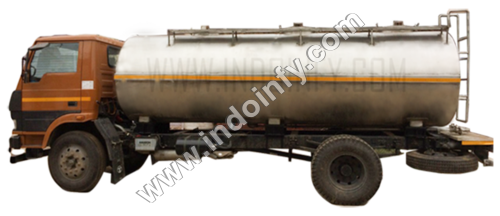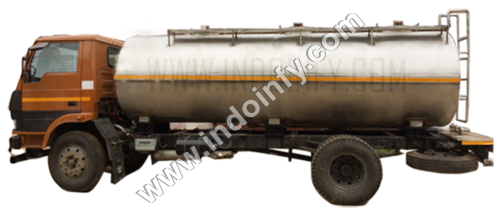
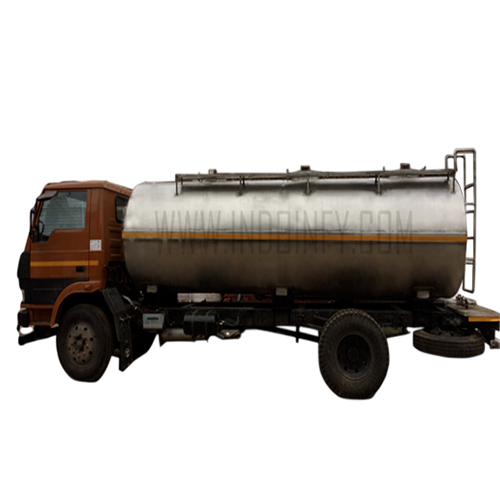
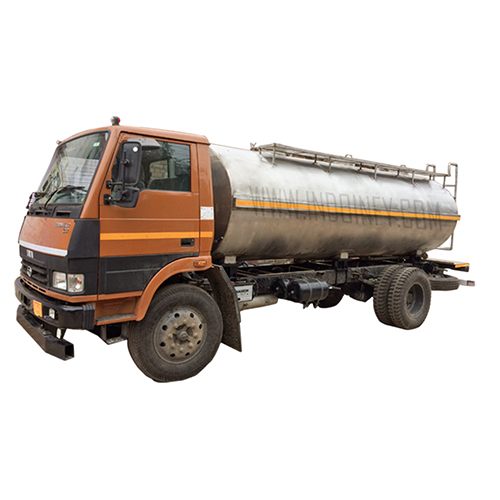
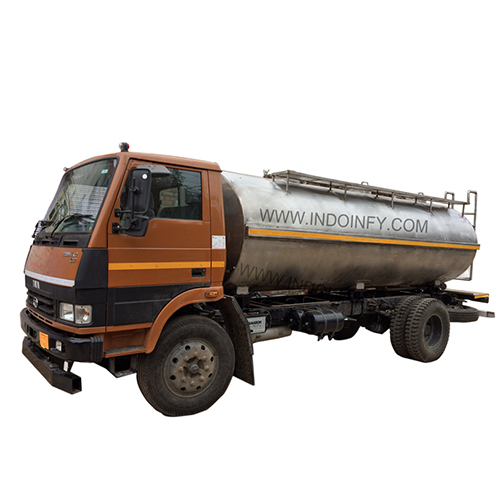
Supply Tanker
Product Details:
Supply Tanker Price And Quantity
- 665000.0 INR/Unit
- 1 Unit
Supply Tanker Trade Information
- 10 Unit Per Week
- 1 Week
- All India
Product Description
A supply tanker, also known as a cargo tanker or product tanker, is a type of ship designed to transport large quantities of liquids, gases, or other bulk cargo. Supply tankers play a crucial role in the global supply chain, providing a safe and efficient means of transporting goods over long distances.
Key Components:
1. Hull: The main body of the ship, designed to withstand the stresses of cargo transportation and harsh marine environments.
2. Cargo Tanks: Specialized tanks or compartments that store the cargo, such as oil, chemicals, or liquefied gases.
3. Pumps and Pipework: Systems for loading, unloading, and transferring cargo between tanks and shore-based facilities.
4. Navigation and Communication Equipment: Systems for navigating, communicating, and monitoring the ship's operations.
5. Safety Equipment: Features such as fire suppression systems, life-saving appliances, and emergency beacons to ensure the safety of crew and cargo.
Operating Principles:
1. Cargo Loading and Unloading: Supply tankers load cargo at terminals or ports and transport it to destinations, where it is unloaded.
2. Cargo Storage and Handling: Cargo is stored in specialized tanks and handled using pumps, valves, and pipework.
3. Navigation and Communication: The ship's crew uses navigation and communication equipment to plot courses, monitor weather, and communicate with shore-based authorities.
Applications:
1. Oil and Gas Transportation: Supply tankers transport crude oil, refined petroleum products, and liquefied natural gas (LNG).
2. Chemical Transportation: Supply tankers transport a wide range of chemicals, including hazardous and non-hazardous materials.
3. Food and Beverage Transportation: Supply tankers transport edible oils, juices, and other food-grade liquids.
4. Industrial Cargo Transportation: Supply tankers transport industrial cargo, such as molten sulfur, asphalt, and other bulk commodities.
Benefits:
1. Efficient Cargo Transportation: Supply tankers provide a safe and efficient means of transporting large quantities of cargo over long distances.
2. Global Trade Facilitation: Supply tankers play a critical role in facilitating global trade, connecting producers and consumers worldwide.
3. Economic Benefits: Supply tankers generate significant economic benefits, including employment opportunities, revenue, and tax contributions.
4. Environmental Protection: Modern supply tankers are designed with environmental protection in mind, featuring double hulls, advanced propulsion systems, and emissions-reducing technologies.
PRICE RANGE: Rs. 2,00,000 - Rs. 20,00,000

Price:
- 50
- 100
- 200
- 250
- 500
- 1000+






